ARTH100: Unit 10- Global Modernisms and Postmodernisms 1850 CE - Present
1/32
There's no tags or description
Looks like no tags are added yet.
Name | Mastery | Learn | Test | Matching | Spaced |
|---|
No study sessions yet.
33 Terms
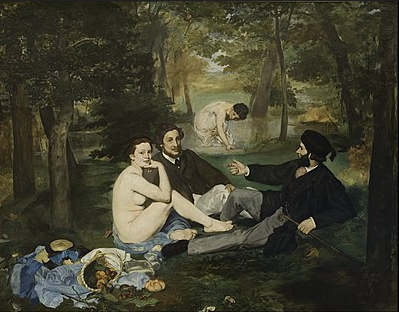
Edouard Manet, Le Dejeuner sure l’herbe
This painting was scandalous when exhibited at the Salon des Refuses, the public was shocked by the subject of a nude woman bathing in a stream with modernly dressed men, recognizing it as modern-day behavior. Critics noted it depicted real people, not classical figures. The way he modeled the nude woman was also disliked, as she didn’t appear to belong.
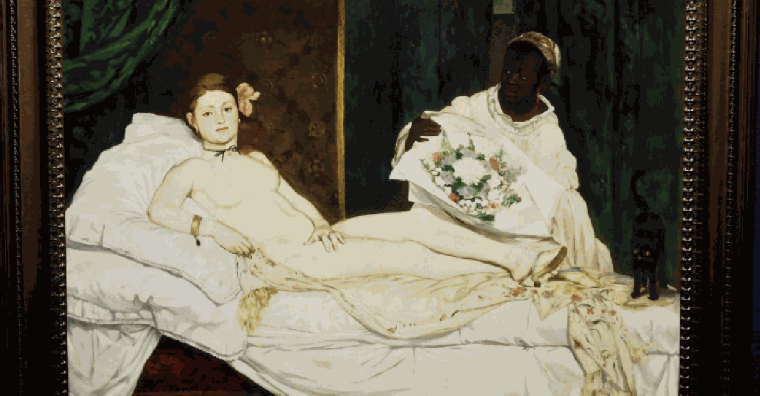
Edouard Manet, Olympia
Criticized for its flatness and shocking light. The woman depicted was a sex worker.
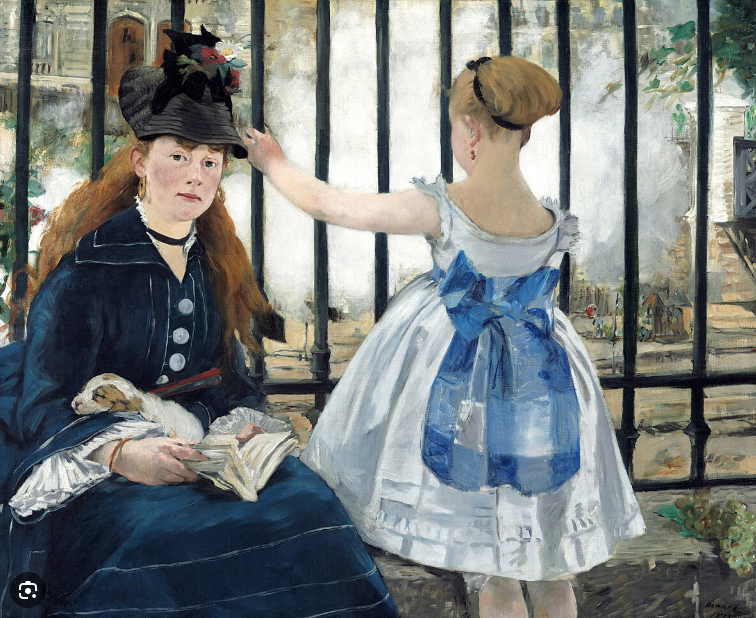
Edouard Manet, The Railway
Depicts everyday modern Paris, specifically the train station. The young girl looking towards the steam represents the future, innocence contrasted with her nanny boldly staring at the viewer, raising the question what the modern woman is like in the modern city: bold and unafraid?
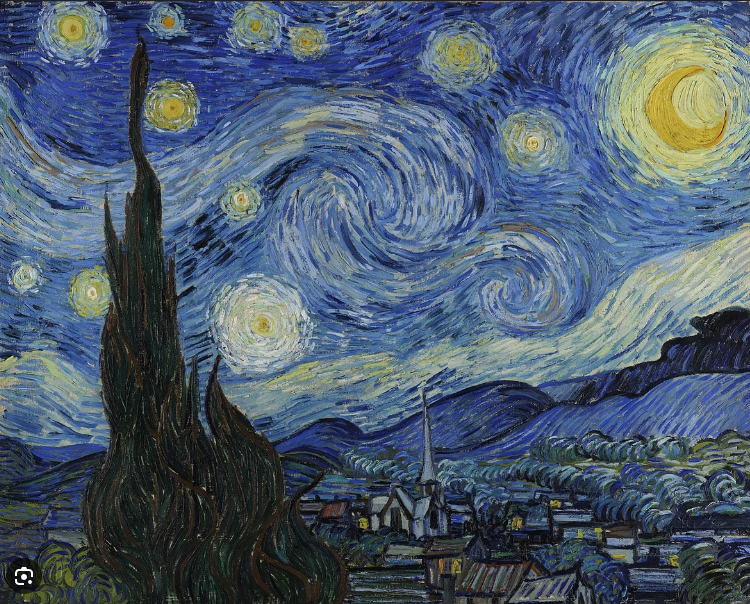
Vincent Van Gogh, The Starry Night
Post-impressionist painting about expressiveness, passion, and feelings. Unusual asymmetrical composition and demonstrates his interest in color and its effects.
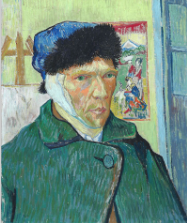
Vincent Van Gogh, Self-Portrait with Bandaged Ear
He painted many portraits, and this was after he cut off his ear, after spending time in Arles in South France
Committed suicide not long after
Post-Impressionism
Experimental and became foundational for artists to come next, even though he was not well-liked in his time
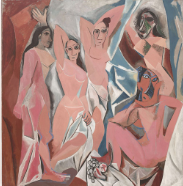
Pablo Picasso, Les Demoiselles d’Avignon
Extensively written about and was a reaction against tradition, pushing further than Matisse
Reacted to Cezanne by rendering form into boxes and shapes
The figures are painted as separate individuals grouped together from different perspectives
Used muddied colors, and employed pointy, shard-like shapes
The figures are not idealized and attempt to represent archetypes,
References a street in Barcelona with sex workers and reflects Picasso’s desire for and fear of women
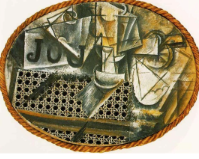
Pablo Picasso, Still Life with Chair Caning
A collage that was part of the language of Cubism and introduced a new direction for art (synthetic cubism) by combining mishmashes of forms, text, painting, and rope bridging mass-produced objects into high art

Marcel Duchamp, Nude Descending a Staircase
Associated with Dada and Surrealism, known for introducing the ready-made
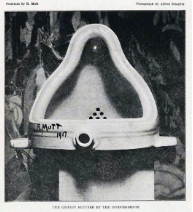
Marcel Duchamp, Fountain
Signed R. Mutt
Involved submitting a urinal as a sculpture, leading to controversy and exploring the idea of the mass-produced object as art
This helped change the way we view art, opening it up to many practices

Marcel Duchamp, L.H.O.O.Q
Postcard of the Mona Lisa to violate gender norms with text that sounds like “she’s got a hot ass”
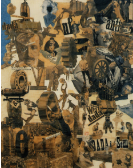
Hannah Hoch, Cut with the Kitchen Knife through the Last Weimar Beer-Belly Cultural Epoch in Germany
Key figure in Dada
Work became political after WWI, using the ready-made and the new photographic presence in society (mass media) to critique modern society and politics
Directly addressed the state of German society during the Weimar regime, the struggles to bring security, and the rise of fascism
The title references women’s work and the use of a female tool to cut into the masculine political class, featuring both male and female gender elements and references to political figures and Dada artists
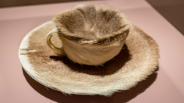
Meret Opeenheim, Object, fur covered saucer and spoon
Associated with Surrealism
Takes the familiar and renders it unfamiliar
Transforms the function of ordinary objects and has a physical effect on the viewer, potentially relating to Freudian ideas of the physical manifestations of the internal psyche
Aimed to make art on her own terms
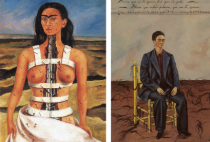
Frida Kahlo, The Broken Column & Self Portrait with Cropped Hair
Important to discuss in relation to surrealism, although she wasn’t officially a member
Self-portraiture and her personal relationship with society, her body, and others
Presented women as artistic subjects with bodies that didn’t conform to beauty ideals
Directly responded to physical trauma in her life
Explored gender and sexuality, representing herself as a free spirit who broke with societal norms, including being bi and representing herself in male forms, concerned with constructing her own image and reclaiming her identity in Mexico
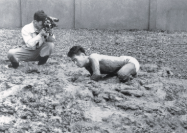
Gutai Art Exhibition, Challenging Mud
Held in Tokyo
Represents an early example of Performance Art, moving away from dominate forms
group of artists interested in exploring new ideas of art making, defying boundaries, and being experimental
Focused on experiencing something rather than a tangible object, prompting viewers to understand their own reactions

Shirin Neshat, Rebellious Silence
Confronts viewers with the idea of how women and the Middle East are represented in the West and how certain signs and symbols have become iconic, overshadowing individual identity
Presents complex individuals, challenging viewers to think about how they understand Muslim women
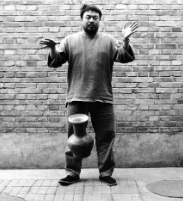
Al Weiwei, Dropping a Han Dynasty
Questioning what we value
Reaction to discovering some cultural objects were not highly valued
Documented himself smashing a Han Dynasty urn, arguing that the loss of one object gives potency to the relationship we have with all objects
The work still exists in its documentation
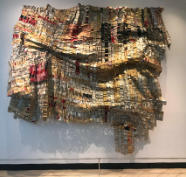
El Anastui, Old Man’s Cloth
His work questions material value
Looks like a tapestry but us made from metal fragments, specifically flattened liquor bottle labels
Uses the language of textiles, raising questions about whether the work is two-dimensional of three-dimensional and challenging notions of high/low art
By transforming everyday objects, he asks what we value
The bottle caps also have a history related to trade between Africa and Europe (alcohol)
Realism
Impressionism
Post-impressionism
Neo-impressionism
Fauvism
Expressionism
Cubism
Dadaism
Futurism
Surrealism
Abstract Expressionism
Collage
Montage
Assemblage art
Appropriation
Pop Art